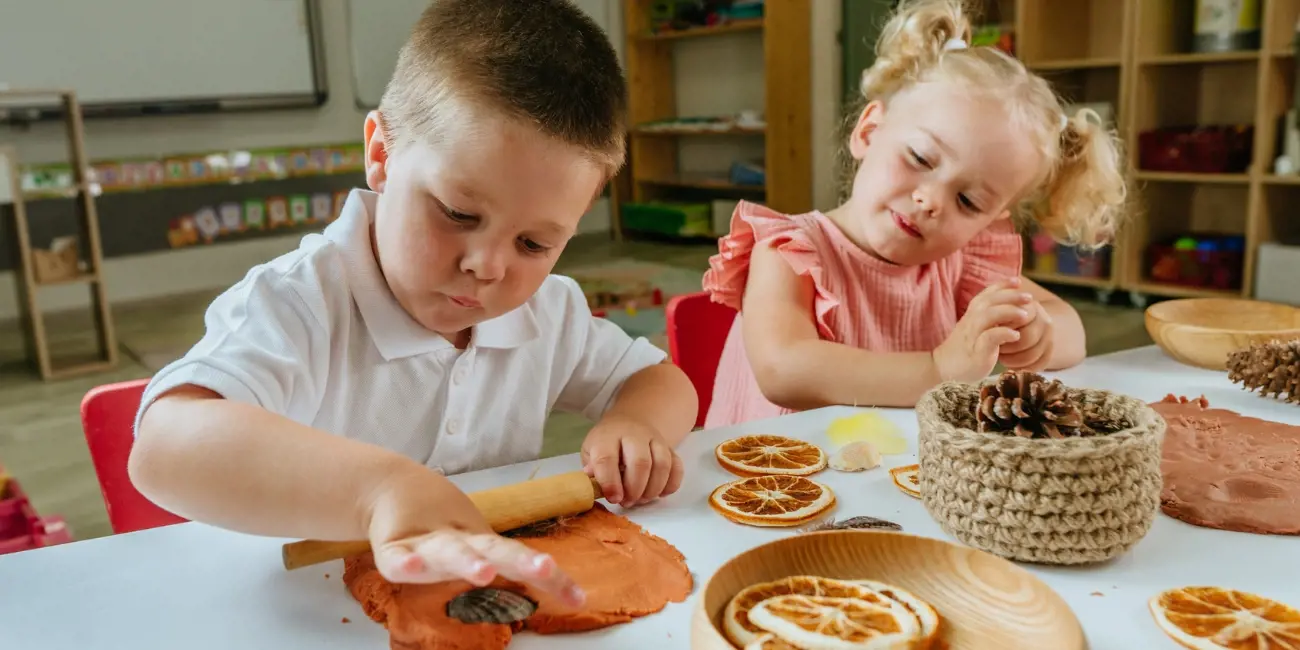With so many different learning philosophies, it’s hard to know which one is going to be the right fit for your family.
Will your child thrive in a more structured environment or is something with a little more freedom the way to go? Would you prefer to have your child taught through play or is a child-led approach more your style?
We take a quick look at some of the different learning philosophies and educational approaches that are taught across our vast early education sector.
Within each, you will have the chance to take a deeper dive to learn more about the approach that might best suit your family and child.
The Steiner Approach
The Waldorf/Steiner approach to early childhood education is based on the teachings of Rudolf Steiner. It is a strategy emphasising the importance of active and hands-on learning experiences.
According to the Steiner approach the first seven years are critical in determining the future well-being of children as this is when the foundations are laid for later learning and healthy development, including life-long physical, social, emotional, intellectual, and spiritual growth.
It recognises children learn best through play, exploration, and interaction with their environment. To best meet the needs of the child, the environment has to be quiet, simple, warm, and peaceful.
The Steiner Approach values holistic education and emphasises the integration of arts, nature, and practical activities into the curriculum. By nurturing children's innate capacities and fostering a love for learning, this approach aims to lay a solid foundation for lifelong learning and personal growth.
The Montessori Approach
The early learning Montessori method is an educational approach that focuses on fostering a child's independence, self-directed learning, and exploration.
Developed by Italian physician and educator Dr. Maria Montessori, this method emphasises the importance of creating a prepared environment that supports a child's natural curiosity and desires to learn.
In a Montessori classroom, children have the freedom to choose their activities within a structured framework. A typical day begins with a warm welcome and a brief group activity to encourage collaboration and build social skills.
Throughout the day, children engage in self-directed learning, moving freely between different areas of the classroom.
It encourages the use of specialised educational materials and activities that promote sensory and hands-on experiences, allowing children to engage in purposeful and meaningful work. The Montessori method values individualised learning, where children are free to choose activities based on their interests and developmental needs.
Explore The Montessori Approach

Reggio Emilia Approach
The Reggio Emilia approach was started by Loris Malaguzzi and parents in the villages around Reggio Emilia in Italy following the devastating effects of World War II. It places a strong emphasis on the child as an active and competent learner, valuing their inherent curiosity and creativity.
The Reggio Emilia Approach views the environment as the third teacher, alongside parents and educators, and believes in creating beautiful, welcoming, and stimulating spaces for learning. It encourages open-ended exploration, project-based learning, and collaboration among children, fostering their problem-solving skills, social interactions, and self-expression through a variety of art mediums.
The approach also highlights the importance of documentation and reflection, allowing children and educators to revisit and analyse their experiences.
By promoting a child-centered and inquiry-based approach, the Reggio Emilia Approach seeks to empower children as capable contributors to their learning journey, while valuing their unique perspectives and voices.
The Froebel Approach
German educator Friedrich Froebel was the first to recognise that children experience significant brain development in their first three years of life. His kindergartens (children's gardens) were based on the philosophy that humans are creative beings and need to be allowed to experience, learn and develop on their terms and at their own pace.
At the heart of the Froebel Approach is the belief that play is the natural way through which children explore and make sense of the world. The Froebel Approach promotes holistic development and creativity in early childhood education.
It aims to foster holistic development and a love for learning from an early age.
The Curiosity Approach
The Curiosity Approach is an educational approach that encourages and nurtures children's natural curiosity and inquisitiveness.
It values open-ended exploration, self-directed learning, and hands-on experiences as the foundation for children's development and education. It emphasises creating an environment that stimulates curiosity, with natural, authentic resources that invite investigation and discovery.
The Curiosity Approach promotes child-led play, where children can follow their interests and engage in imaginative and creative activities.
The role of the educator is the facilitator, supporting and extending children's learning experiences based on their interests and abilities. By embracing curiosity it aims to inspire a lifelong love of learning, critical thinking, and a sense of wonder in children.
Explore The Curiosity Approach
The Pikler Approach
The early learning Pikler approach is a child-centered methodology that focuses on promoting a child's autonomy, independence, and respectful care from birth to early childhood.
Named after Dr. Emmi Pikler, a paediatrician who lived and worked in Hungary, this approach emphasises the importance of free movement and self-initiated play in a safe and supportive environment.
Dr. Pikler viewed babies as active participants rather than passive recipients of care and encouraged carers to take a cooperative approach in all their interactions with babies.
It's your choice
Whichever one you decide to go with or, even if you choose to go with a more traditional play-based early learning option, you can rest assured that just by investigating, you've opened your mind to an alternative education and that is admirable.
Selecting childcare is challenging and deeply personal, you have to make sure it's right for you and your child. Care for Kids is with you every step of the way of your journey.



































